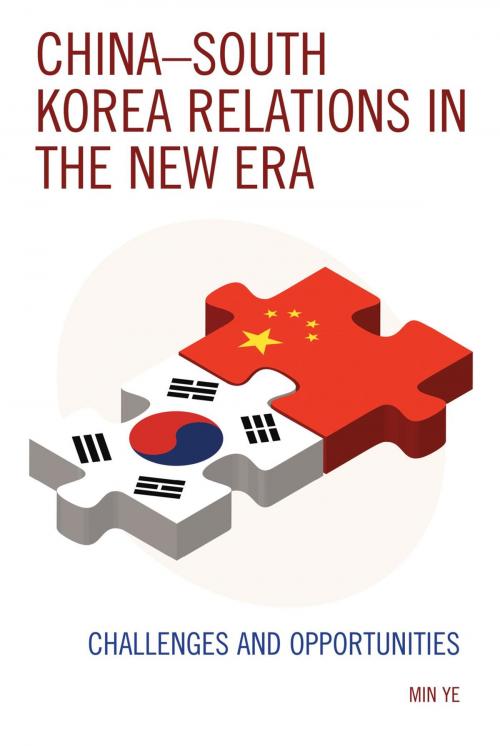China–South Korea Relations in the New Era
Challenges and Opportunities
Nonfiction, History, Asian, Korea, Social & Cultural Studies, Political Science, International, International Relations| Author: | Min Ye | ISBN: | 9780739198575 |
| Publisher: | Lexington Books | Publication: | June 20, 2017 |
| Imprint: | Lexington Books | Language: | English |
| Author: | Min Ye |
| ISBN: | 9780739198575 |
| Publisher: | Lexington Books |
| Publication: | June 20, 2017 |
| Imprint: | Lexington Books |
| Language: | English |
This book offers a comprehensive examination of China–South Korea relations after their diplomatic normalization in 1992, paying close attention to the most recent controversies in the bilateral relationship after the turn of the century. Inspired by the sharp contrast between their booming economic exchanges and declining political relations in recent years, this book posits that the so-called “end of China–South Korea honeymoon” actually reflects two emerging features in the bilateral relationship. The first is a process of strategic adjustments in East Asia prompted by the new reality of a rising China, and to a lesser extent, a rising South Korea. The second regards both countries’ domestic politics: traditional state autonomy in foreign policymaking is being challenged by better-informed and more assertive general publics who raise, frame, and highlight issues and effectively press their governments for action.
In this book, the developments of China–South Korea relations are analyzed from a broader historical and theoretical perspective. Historically, the developments in the bilateral relationship are seen as a sign of transitions in a changing internal and external context. Theoretically, a comprehensive framework is constructed to integrate intergovernmental interactions (conventional diplomacy), semi- and non-official contacts (public diplomacy), and each country’s domestic political institutions. The analysis reveals a complicated and dynamic process that defines the bilateral relationship in the new century.
This book offers a comprehensive examination of China–South Korea relations after their diplomatic normalization in 1992, paying close attention to the most recent controversies in the bilateral relationship after the turn of the century. Inspired by the sharp contrast between their booming economic exchanges and declining political relations in recent years, this book posits that the so-called “end of China–South Korea honeymoon” actually reflects two emerging features in the bilateral relationship. The first is a process of strategic adjustments in East Asia prompted by the new reality of a rising China, and to a lesser extent, a rising South Korea. The second regards both countries’ domestic politics: traditional state autonomy in foreign policymaking is being challenged by better-informed and more assertive general publics who raise, frame, and highlight issues and effectively press their governments for action.
In this book, the developments of China–South Korea relations are analyzed from a broader historical and theoretical perspective. Historically, the developments in the bilateral relationship are seen as a sign of transitions in a changing internal and external context. Theoretically, a comprehensive framework is constructed to integrate intergovernmental interactions (conventional diplomacy), semi- and non-official contacts (public diplomacy), and each country’s domestic political institutions. The analysis reveals a complicated and dynamic process that defines the bilateral relationship in the new century.















